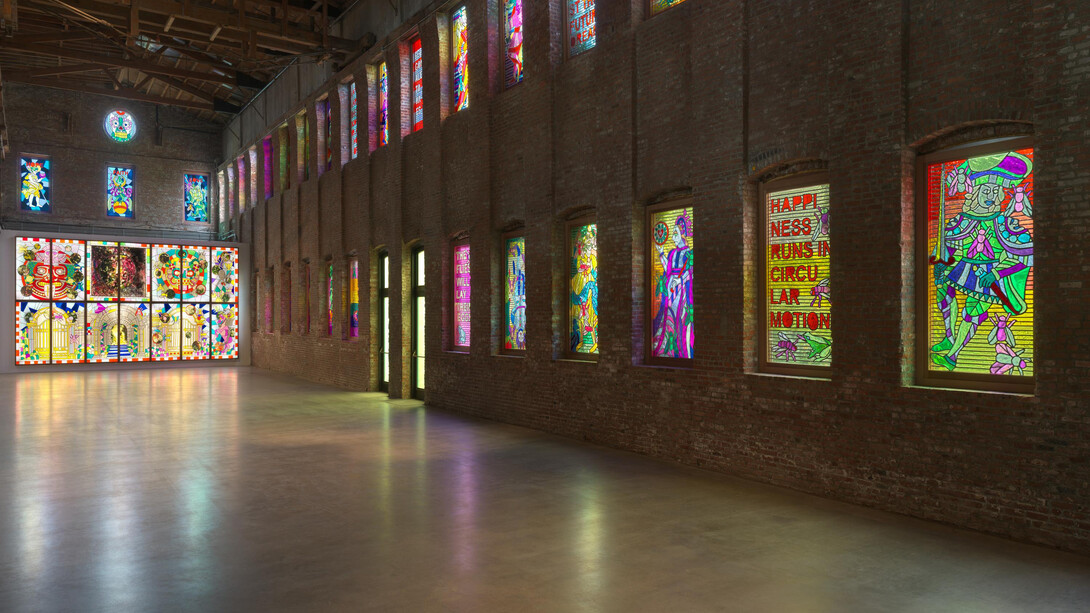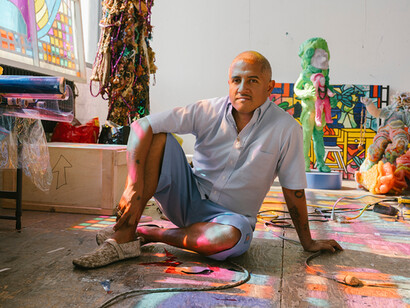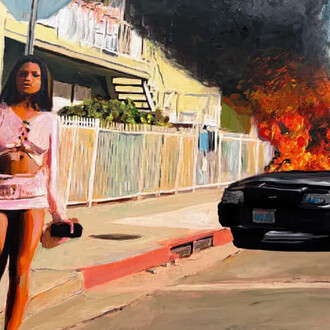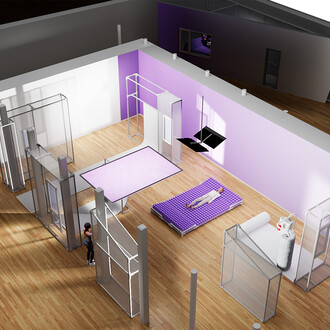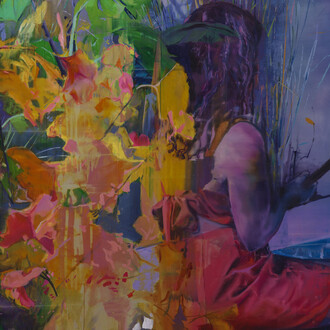In light of innocence marks Raúl de Nieves’s first solo institutional show in New York City. The exhibition features a new body of work that transforms the entire Main Hall of Pioneer Works into an immersive, cathedral-like environment that conjures personal reflection and collective imagination.
Known for his use of modest, everyday materials, de Nieves explores aesthetic beauty while challenging its historical and religious underpinnings. His stained glass windows reference Western religious traditions—particularly, those of Catholicism—and ultimately reimagine places of worship as sites of transformation, in spite of their legacies of violence and exclusion. In light of innocence presents the site-specific installation of 50 faux stained glass panels, fitted throughout the windows that line the Main Hall as well as a monumental lightbox mural.
In conjunction with his reinterpretation of Catholic and Mexican folkloric motifs, de Nieves uses tarot’s rich symbolism and archetypes as a framework for imagining new relationships with the future. Unlike traditional religious hierarchies, tarot allows for multiple perspectives and characters to hold equal power. In the same vein, his windows resist rigid meaning by blending figurative and abstract imagery into a dreamlike, open-ended vocabulary. While tarot is a key reference, de Nieves also incorporates text fragments from memory, reflecting his belief in the poetic potential of everyday language. Throughout his works, words function as both image and idea—simultaneously literal and symbolic.
The artist’s process of turning humble materials into radiant artworks mirrors spiritual metamorphosis, offering new ways to experience time and light. Constructed from materials such as paper, wood, glue, tape and, most prominently, colored acetate, his window panels create shifting fields of kaleidoscopic color. As light filters through them, the space becomes dynamic and alive, changing by the hour as the sun moves. This fluidity is central to the work, echoing how we continually revise our understanding of ourselves and the world.
Residing at the far end of the Main Hall, de Nieves’s lightbox mural features three arches, a horse, and a skeleton framed by various portraits. In tarot, the skeleton signifies not physical death but transformation—an end that makes space for renewal—while the horse, a symbol of strength and movement, becomes the force that carries us through change. Together, these archetypes create a sanctuary where personal reflection and shared connection coexist. In light of innocence invites viewers to embrace change not as loss, but as renewal—a passage that leads to deeper insight and inner strength.
